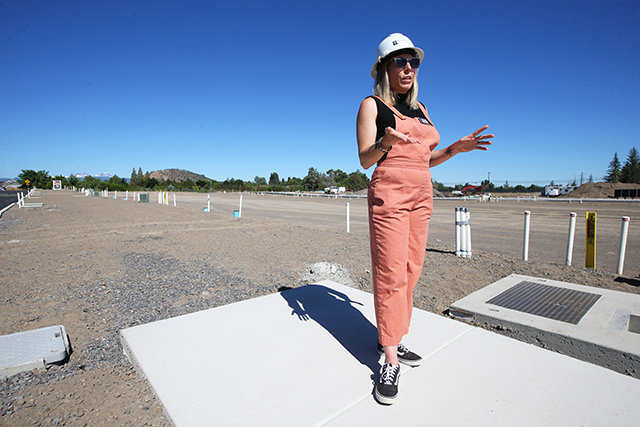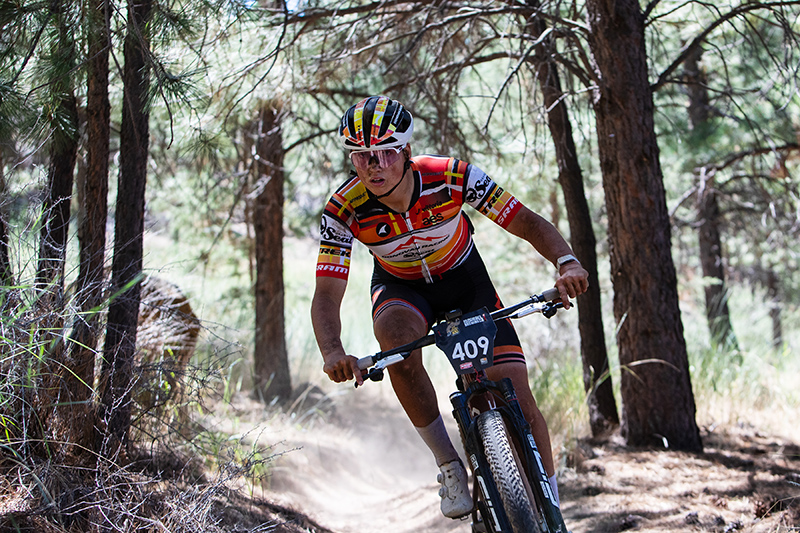Simply radical
Published 5:00 am Tuesday, September 13, 2005
n 1990, Dan Price walked away from his career as a Kentucky newspaper photographer and moved to a tipi in a Joseph meadow.
And that has made all the difference.
Trending
Actually, we should quote Thoreau, not Frost. Price, 48, has been living a 15-year experiment in Thoreauvian simplifying. Gradually, he has peeled away the demands, devices and distractions of the workaday world.
For those of us caught up in the rat race, or stepping up to its start line, he has wisdom to impart. There is an alternative – Price is living proof – and for him it’s worked out rather well. His artwork and approach to life led to a sponsorship and design deal with Simple Shoes, as well as a popular zine and book projects. But if he has done well for himself, it’s because he needs so little.
Price will present a slide show when he discusses his second book, ”Radical Simplicity: Creating an Authentic Life,” Wednesday at Paulina Springs Books (see ”If You Go”). In the newly published book, Price focuses on his journey into a scaled-back life of tipis, huts and, now, an underground ”kiva”-type room, replete with a skylight and electricity.
As a kid, Price ”built hideaways of all kinds,” he writes. At 16, he sneaked off into the woods and built a cabin. ”I’m still haunted by those dreams of solitude and simplicity,” he continues.
In 1990, he and his wife were arguing too much and decided, after 10 years of marriage, to go their separate ways: She to Western Oregon with their two kids, while Price was off to Joseph, ”headed for the pine-covered hills of my childhood home with dreams of unbridled minimalism on my mind,” he writes.
He moved into a flophouse room and began hunting around. He took out an ad in the local paper that read, ”Newcomer seeks rural property to lease for tipi habitation.” None of the ranchers he met nibbled at the idea.
Trending
Eventually, he stumbled on a spot just a few hundred yards from the hotel, a ”wonderfully secret place along the creek with big trees and a flat spot for a tipi,” he wrote in a journal of the time.
Price persuaded the landowners to lease him two acres for just $100 a year. In return, he mows the meadow, mends fences and generally improves the property, he said in a phone interview with The Bulletin on the eve of a six-week book tour.
”I wish I would have known in high school that a person could just go buy a tipi and live in it,” he said. ”I spent a lot of years after high school moving around, living a regular life.” Price needed, but never found, a mentor to tell him how to live the way he sought to live. In time, he figured things out for himself.
Ever since he struck the bargain, Price has avoided what he calls ”the tyranny of square buildings,” creating alternative living spaces – tipis, domes, and, for the last several years, a circular abode carved into a hillside.
He must crawl in and out through the small doorway, which he deems appropriate ”since each coming and going from such a warm, dry shelter ought to be a humbling act.”
Price recently had the revelation that ”wealthy people would spend a lot of money to come and spend a weekend at my place and experience this really low-key kind of camping – yet there’s a shower there – type of really quiet lifestyle,” he said. ”People spend thousands and thousands of dollars trying to create a place like I have. They’ll buy a piece of land and put a $100,000 cabin on it, right? They’ll spend huge amounts of money trying to create this little world of peace and tranquility.
”What’s pretty neat is I’ve done it for next to nothing, and I don’t have the worries of a house or paying for all that stuff. And the environment hasn’t been affected. There’s no concrete anywhere.
”Last night I’m standing in the meadow going, ‘God, look at this place. I just can’t believe it. It’s a totally natural meadow, it doesn’t cost me anything, and yet I can live here. And I would rather live like this, because it’s so much more peaceful.’”
The property owners, and their grown children, recently assured Price he’ll be welcome to live in the meadow he loves the rest of his life, he said.
In addition to being a unique homesteader, Price is also a frequent traveler. Between November 2002 and February 2003, he pedaled a recumbent trike across the States (an adventure you can read more about on www.wizwheels.com/triketour.htm). Price considers himself a ”hobo artist” and has kept up his journalism in a sense, fashioning a hand-lettered, hand-drawn zine, ”The Moonlight Chronicles,” which he sends out to subscribers.
The unpretentious aesthetics of the zine can be found in the book version of ”The Moonlight Chronicles: A Wandering Artist’s Journal,” as well as ”Radical Simplicity.”
The zine evolved out of long-winded letters he wrote to a friend back in Kentucky post-move, venting about his divorce and the challenges of his evolving lifestyle, Price said. He would make monthly trips to Corvallis to visit his ex-wife (who is traveling with him for part of this book tour) and the kids, Shane and Shilo, whose youthful point of view he took inspiration from in his writing and art.
”Shane taught me how to draw and Shilo taught me how to write,” Price said. ”I said, ‘Hold it. My 6-year-old son’s drawing way better than I am, and I’m gonna study his art.’ So I watched how he drew things and just started drawing with my left hand and just got a whole different kidlike vibe going.”
As for older daughter Shilo’s teaching him to write, Price said, ”We recorded her, actually, both of them, talking when they were little. When they started babbling, we’d turn on the tape player. These are the coolest tapes. Just the way they talked, it just got me into this whole mode of trying to regain my innocence.”
The kids spent two summers with him in the tipi. When he wasn’t traveling on monies from Simple Shoes, Price tried to be ”the best father in the world,” building tree forts for the kids.
”They’d just sit there and watch me build it,” he said, laughing. ”To this day, they’re like the opposite of me, almost … they don’t think I’m a kook. They can understand what I’m doing is kind of cool, too.” The kids, now 19 and 21, live in Bend.
”I said, ‘Shane, you’re paying 500 bucks for an apartment in Bend? Just talk someone into putting a tipi up on the land and renting it out to you!’”
People, argues Price, are fearful of change, but ”one of the things I point out pretty strongly there is that every time I took a leap and really got rid of more stuff, or things I really thought I had to have, I just was filled with this huge energy.”
Yet Price doesn’t seek to mentor or become anyone’s guru. ”All I have to offer is the book,” he said. ”See, this is a chapter in my life (asking) ‘How can I live so that my life is freed up and not have to go to work every day and pay bills and be all frustrated?’
”This is just a portion of what my life’s about. That was just a way to set up my life so I had freedom. Now that I have that freedom, now that the kids have moved out, I’m going to just be wandering around … after this book tour, I’m going to be on my trike.”








